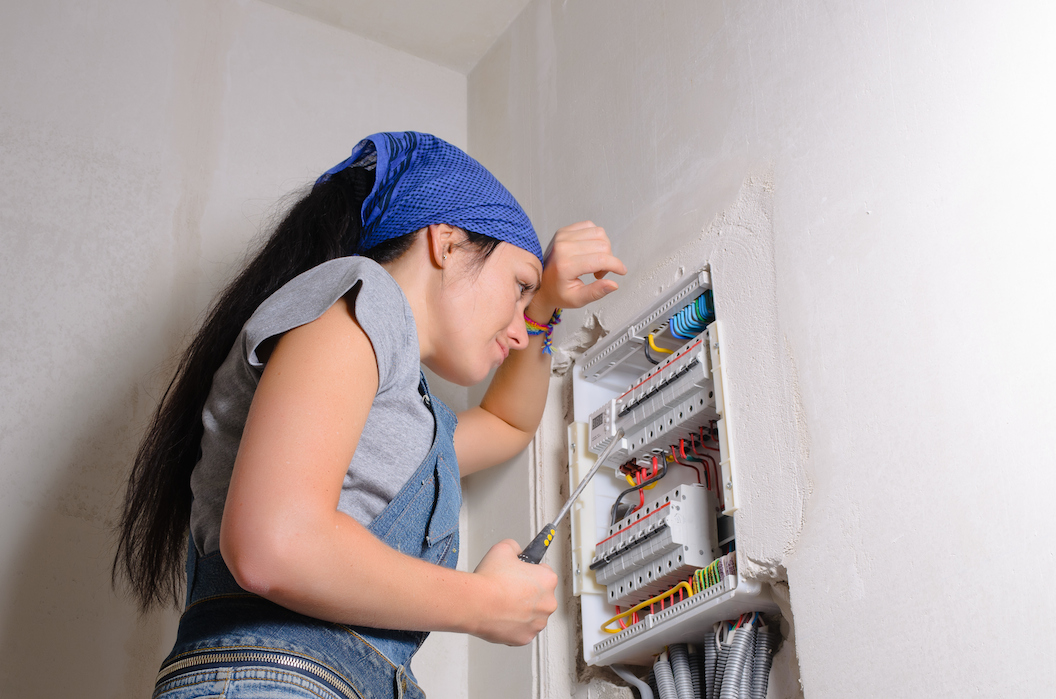
Domestic Disasters: Dealing With Power Cuts
In this latest in our series on the unpredictable events that can face us as homeowners we take a look at power cuts. We rely on power in our homes for just about every aspect of our daily lives and when it is suddenly removed it can be very disruptive.
Causes of power cuts
Power cuts can happen for a variety of reasons. The most common cause is weather. If there is a thunderstorm or a blizzard your area, you run the risk of being affected. Lightning is another of the main causes of power cuts, either by striking power lines or causing large trees to fall over and do so. Snow can also cause damage to electric wires. Aside from weather, other events such as construction work or various types of accident can also cause disruption to your power supply.
However, if you do have a power cut you should also check with your neighbours to see if they are affected too. It may be a more localised fault – where only a few houses on a particular circuit are affected – in which case it is worth contacting your local supplier to make sure that they are aware of the issue and can sort it out as quickly as possible.
If no other homes are affected then it is likely to be an issue with your own fuses, trip switches or wiring. If you are unable either to determine the cause of the problem and sort it out yourself then it is essential to call for professional help immediately.
What to do in a power cut
Whatever the cause of your loss of power, most power cuts are fairly short term and either your energy company or an electrician will be able to restore power within a relatively short period of time. But unfortunately some power cuts can last considerably longer. In this case what do you do?
Firstly it is important to be prepared for a power cut. You need to have items readily available in your home that will help you in the case of a power cut. Few of us bother to do this, but making the effort to gather together some essential items and have them close at hand could make a big difference in the event of a power cut. You should aim to have the following essentials close to hand:
- Torches and batteries
- Candles
- Matches and at least one lighter
- Battery operated radio
- A fully charged mobile phone with emergency numbers (eg your power company and your doctor) as well as contact details for your close family and friends, your workplace and childrens’ schools.
- A first aid kit: as well as all the basics, ensure you have spare supplies of any specific medication that anyone from the family requires.
- Fresh drinking water
- Canned food
If a power cut does happen, what can you do to ensure that your family is safe? Here are three essential measures you need to take:
- Turn off all electrical appliances
Everything should be turned off when the power goes out. This includes fridges and other kitchen appliances, televisions, computers and any other electronic gadgets in your home. Turn everything off at the mains. Turning everything off will avoid potential short circuits if the power comes back in surges.
Stay away from water if your power cut was caused by a storm. There is a risk of electric shock. If any part of your home is flooded do not attempt to go to turn off appliances but contact your water supplier to shut down from the meter.
Depending how long the power cut goes on for and how significant your needs for power are, you may want to consider hiring a generator to help. Again, it is a good idea to research this in advance and to have the contact details to hand in case of such an emergency: trying to find details and hunt down a generator once the power has actually gone is going to be stressful and also bear in mind that everyone is going to be thinking the same way! So a little bit of time spent on research right now could pay dividends in future.
When power is restored, there are also a few things you need to do to make sure that all is well in your home.
If the power cut was caused by a storm, check every place inside your house for excess water. If you find an area of your home has been flooded, do not touch anything but call for professional help. Similarly, if any of your appliances or electronics have been affected by water then get them checked by a specialist too just to make sure they are safe to use.
Even if there is no water damage, be careful switching electronics back on again in case they have been damaged by the sudden loss of power. If you notice anything that you are not happy with, switch off and unplug, and seek professional advice.
Also check outside your home to see if there has been any storm damage such as fallen trees or broken branches that could be dangerous to you or your family.
Finally, even though you have just had a power cut, another one is always possible. So don’t become complacent but make sure your essential supplies are put back where they should be, and are topped up as needed so they will be ready for any future incidents.
If you suffer from lasting damage after a power cut, you need to check with your insurance company what they do and do not cover. You may be able to claim for replacing electrical items, repairing water damage or restocking your freezer. You may also be entitled to compensation from your energy supplier if your power cut lasts longer than 24 hours.
However, if this is not the case and you need some additional money to sort yourself out then help is at hand! With an unsecured loan from Loans 2 Go, you can have the money in your bank account – or cash in hand – within an hour.
So if you need help recovering from a power cut then why not enquire about an unsecured loan with us online, call us on 0330 400 0403, What’sApp us on 07976 200 597 or email us on [email protected].
Previous ‘Domestic Disasters’ hints and tips:


 If you have bad credit, how long will it last?
If you have bad credit, how long will it last? 















